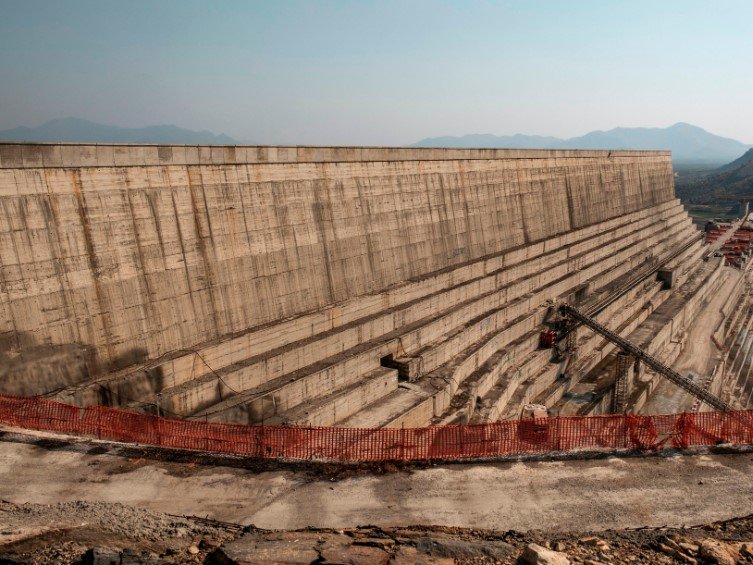Ethiopia has accused Egypt of clinging to a colonial mentality in the ongoing dispute over the Grand Ethiopian Renaissance Dam on the Nile River. The latest clash, reported on October 15, 2025, highlights growing tensions as Ethiopia defends its right to use shared waters for development while Egypt warns of threats to its water security.
Background of the Nile Dam Dispute
The Grand Ethiopian Renaissance Dam, often called GERD, sits on the Blue Nile in Ethiopia and has sparked conflict since construction began in 2011. Ethiopia sees it as vital for electricity and growth, aiming to power millions and boost the economy.
Egypt relies on the Nile for nearly all its water needs, fearing the dam could cut flows and harm farming and daily life. Sudan, another downstream nation, also worries about water levels and safety.
Talks have dragged on for years, with no binding deal. Ethiopia finished building in July 2025 and held an inauguration in September 2025, ramping up the row.
Recent events tie into broader issues, like climate change and droughts, making water sharing a hot topic across Africa.

Ethiopia’s Strong Response to Egypt
Ethiopia’s Ministry of Water and Energy fired back at Egypt’s claims in a statement this week. They called out Cairo for using old colonial ideas to control the Nile and block fair use by other countries.
Officials in Addis Ababa said Egypt spreads false info in global meetings and ignores modern rules for shared rivers. They pointed to Egypt’s small aid projects in Africa as fake shows of help, not real teamwork.
Ethiopia insists the dam helps everyone by storing water and cutting floods, but Egypt blames it for recent high waters in its north. This back-and-forth shows deep mistrust built over decades.
-
-
- Ethiopia claims Egypt diverts Nile water without talks, breaking international laws.
- Addis Ababa vows no backing down from pressure or threats, pushing for equal rights.
- The ministry highlighted how colonial pacts from the past gave Egypt unfair advantages.
-
Egypt’s Side and Water Security Fears
Egyptian President Abdel Fattah al-Sisi has called the Nile a life-or-death issue for his country. In recent speeches, he stressed protecting historic water rights amid the dam’s operations.
Cairo says Ethiopia acts alone in filling and running the dam, leading to floods in places like Beheira and Menoufia last month. Officials warn this puts lives at risk and could spark bigger crises if not fixed.
Egypt pushes for a legal agreement to ensure steady flows, but talks stall. They argue the dam, now Africa’s largest hydropower project, changes the river’s natural balance without enough checks.
Experts note Egypt’s population boom adds pressure, with over 100 million people depending on the Nile. This ties into wider calls for open science and data sharing to manage droughts.
Impact on Sudan and Regional Ties
Sudan sits in the middle, facing floods that killed hundreds this year. While it gains from the dam’s flood control, leaders worry about sudden water releases.
The dispute strains East African relations, with Ethiopia seeking support from other Nile Basin states. Recent U.S. statements back Egypt’s water needs, adding global layers.
Cooperation could bring benefits like shared power grids, but accusations fly. Ethiopia rejects Egypt’s “hegemonic ambitions,” while Cairo sees threats to survival.
| Key Events in the GERD Dispute | Date | Description |
|---|---|---|
| Construction Starts | 2011 | Ethiopia begins building without full agreement from neighbors. |
| Filling Begins | 2020 | First reservoir fill sparks protests from Egypt and Sudan. |
| Dam Completion | July 2025 | Ethiopia announces the project is fully built. |
| Inauguration | September 2025 | Official opening heightens regional tensions. |
| Latest Accusations | October 2025 | Ethiopia blasts Egypt’s colonial stance amid flood claims. |
This timeline shows how the issue has grown from a local project to a major diplomatic challenge.
Potential Paths Forward
Experts suggest more talks with neutral help, like from the African Union or UN, to find fair water-sharing rules. Open data on river flows could ease fears and build trust.
Long-term, climate shifts may force new deals, as droughts hit the region harder. Ethiopia’s push for energy independence clashes with Egypt’s needs, but shared goals like green power offer hope.
Some see room for win-win outcomes, such as Ethiopia exporting electricity to neighbors. Yet, without compromise, risks of conflict loom, though both sides deny military plans.
Broader Lessons for Africa
Water rows like this highlight Africa’s resource challenges as populations grow. The Nile Basin involves 11 countries, and GERD sets a model for future projects.
Initiatives for basin-wide pacts aim to replace old colonial deals with modern equity. Recent floods link to heavier rains, not just the dam, per some studies.
This case ties into global talks on sustainable development, urging balance between growth and shared resources.
What do you think about this ongoing dispute? Share your views in the comments and spread the word to keep the conversation going.
